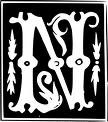"He that wrestles with us strengthens our nerves and sharpens our skill. Our antagonist is our helper."
Did I ever tell you that I almost went to law school? So deep was my love of logic and the power of argument, that I could've really enjoyed a career wielding those tools in defense of the those needing assistance. This is, of course, a very idealized picture of what a lawyer does, and I was fortunate enough to be able to disabuse myself of the notion that being a lawyer would have been that satisfying to me as a career.
Even though the prospect was scarier, and the path to success much less clear, I opted for graduate school instead. Law school offered the potential for scholarships; graduate school offered a struggle for acceptance in the programs of my choice, as I was ill-prepared to 'demonstrate' my commitment to this field of study. So why didn't I make the smart, responsible, logical decision, and attend law school?
If you've been paying attention, then you know the story about the questions that drove me to study the brain and cognition. My questions. My questions are what drive me still; not the questions that you tell me need to be answered.
No one sets out to be a heretic. They simply wake up one day and find that somewhere along the way they have crossed a line. The rational response to that is to simply keep one's mouth shut. I mean really, if your choices are to keep working on something that interests you, or to repeat the same arguments again and again and again for every person who wants to take their shot, what would you do?
So perhaps it is the part of me that loves logic and the power of argument that lets me surface every now and again to take on someone whose arrogance I find particularly annoying. ;) In the end though, I don't expect to do anything other than to continually work to refine my argument and measure it against the arguments of others. If you've got something useful to say, bring it on.
I've been very reluctant to reveal some of the ideas that I've entertained in an attempt to explain why the defaults of classical physics are what they are, given what we know about how they can be appear to be violated. (Nothing gets you a label faster than spouting half-formulated ideas in a domain outside your own. ;) Recently though I read a small book called Einstein's Dreams, by Alan Lightman (1993). (Brilliant book; I highly recommend it.) And I realized, I can do that. I can flesh out a speculation until it becomes unsatisfactory for whatever reason. It will be a speculation, and that is just fine. This is a work-in-progress, not a finished product. And if you witness all the errors I make in the process, that's just fine as well.
But you'll have to wait just a bit, as I have something more mainstream to finish up at the moment.
Friday, March 7, 2008
Subscribe to:
Post Comments (Atom)


No comments:
Post a Comment